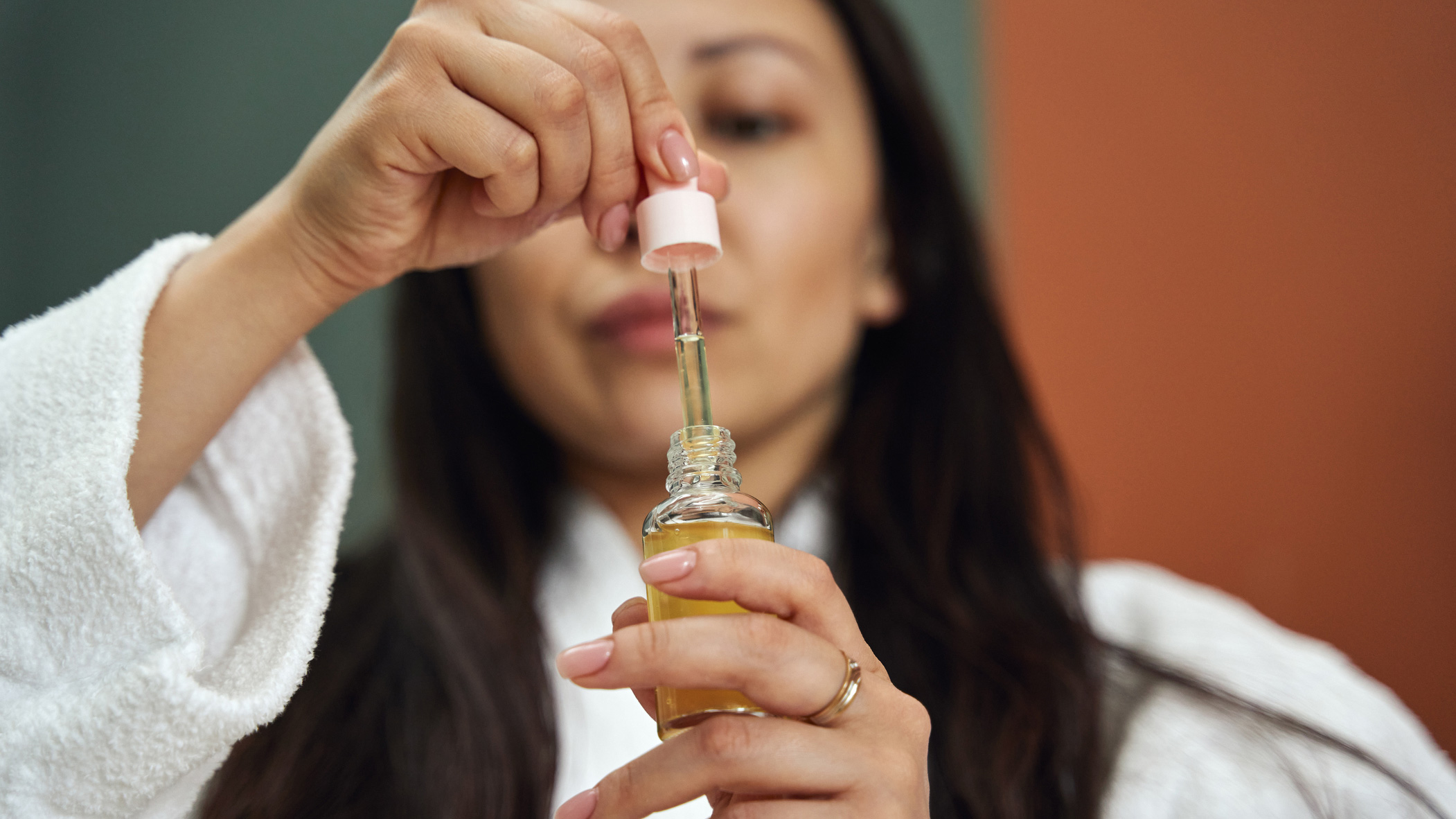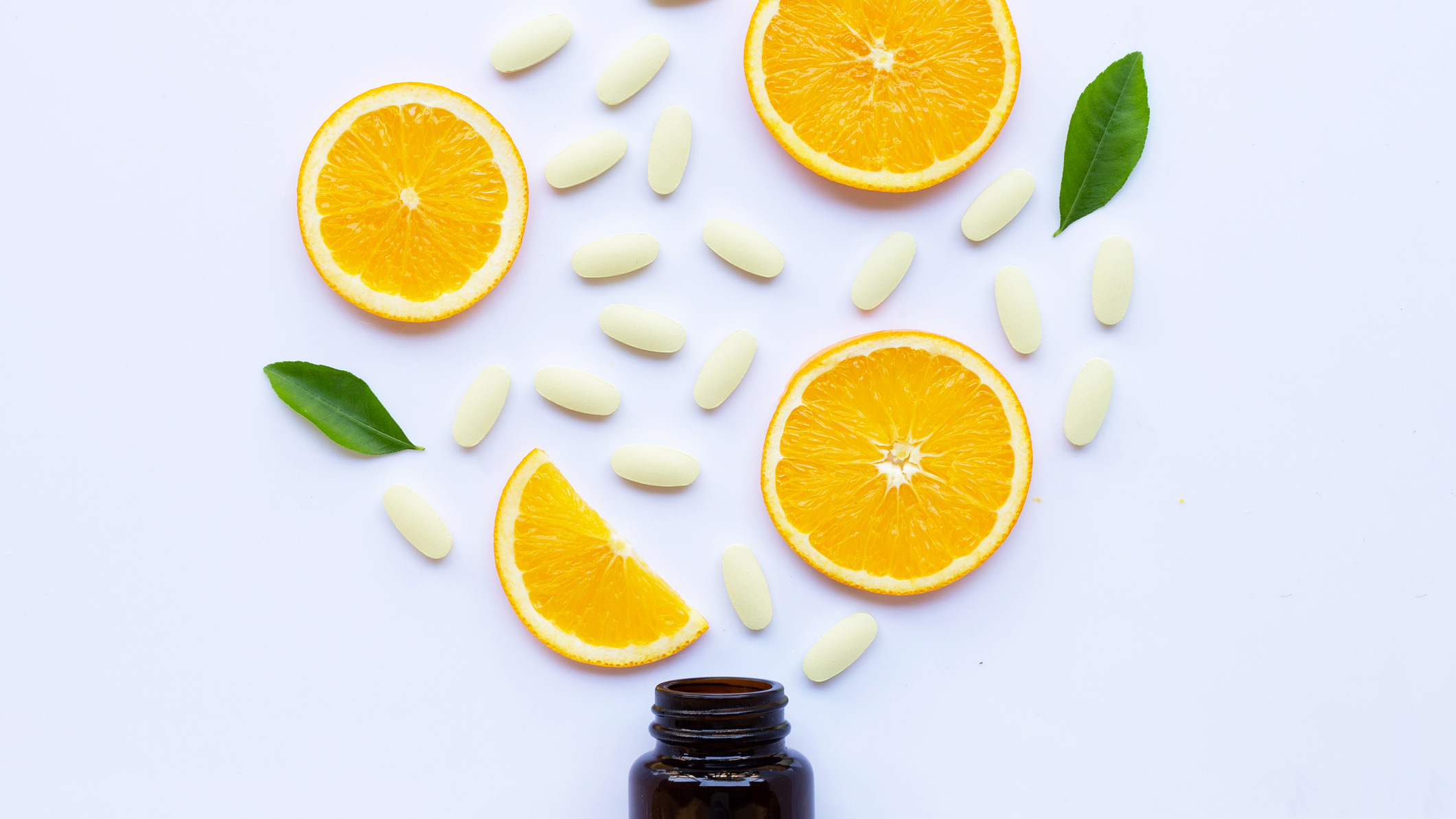Vitamin C is essential for skin health – but should you eat it or apply it to your face?
Vitamin C is essential for collagen production, but should we be using it in serums, supplements or whole foods?


Start your week with achievable workout ideas, health tips and wellbeing advice in your inbox.
You are now subscribed
Your newsletter sign-up was successful
Vitamin C is great for our skin, helping to keep us looking younger and healthier. It does this via a process known as collagen synthesis: vitamin C helps two of the body's enzymes create collagen, a protein that is essential for maintaining skin elasticity.
Your body naturally creates collagen, but the amount it creates decreases as you age, which is why our skin sags as we get older, and with excess sun exposure. Vitamin C helps the body replenish its collagen supplies and guards against the damaging effects of UV rays, although it's not sunscreen.
Women, in particular, lose 30% of their collagen production during the first five years of menopause, which is why many of the best menopause supplements and best vitamins for women over 50 might include ingredients high in vitamin C.
Skincare serums and other anti-aging products also make much of their vitamin C content. There's a good reason for this: one study published in the journal Nutrients showed that daily use of a vitamin C formulation for three months improved the appearance of facial wrinkles. However, why buy expensive serums when you could just eat an orange?

Serums that go on top of the skin are known as "topical" vitamin C, or ascorbic acid, whereas whole foods and oral supplements are known as "dietary" ascorbic acid. Researchers at the University of Oregon set out to find out which method of vitamin C application was most beneficial to the skin: applying it directly with topical serums, using oral supplements, or simply eating more dietary vitamin C sources.
The researchers looked at all the known, previously existing data on the different methods of absorbing ascorbic acid. They found that "oral supplementation with vitamin C may help prevent UV-induced damage, especially in combination with supplemental vitamin E.
"Dietary vitamin C may also provide photoprotection, but the extent of the protective effects will require additional research. Topical application of vitamin C appears to be an effective route for delivering ascorbic acid to the skin."
Start your week with achievable workout ideas, health tips and wellbeing advice in your inbox.
So there you have it: while you certainly won't do yourself any harm by eating more vitamin C from a dietary perspective, there's currently no science to suggest it's the most efficient form of getting the protective benefits.
Applying ascorbic acid directly to the skin actually seems to work in terms of reducing wrinkles and providing protection against the sun – be on the lookout for potential vitamin C content when searching for anti-aging products. Hydration is also key to better skin health – our best water bottles list will make sure you're getting enough to drink during the day.
Matt Evans is an experienced health and fitness journalist and is currently Fitness and Wellbeing Editor at TechRadar, covering all things exercise and nutrition on Fit&Well's tech-focused sister site. Matt originally discovered exercise through martial arts: he holds a black belt in Karate and remains a keen runner, gym-goer, and infrequent yogi. His top fitness tip? Stretch.
